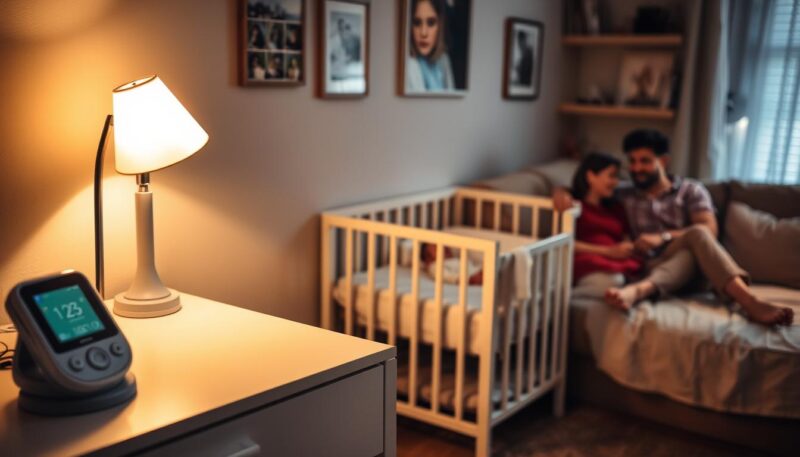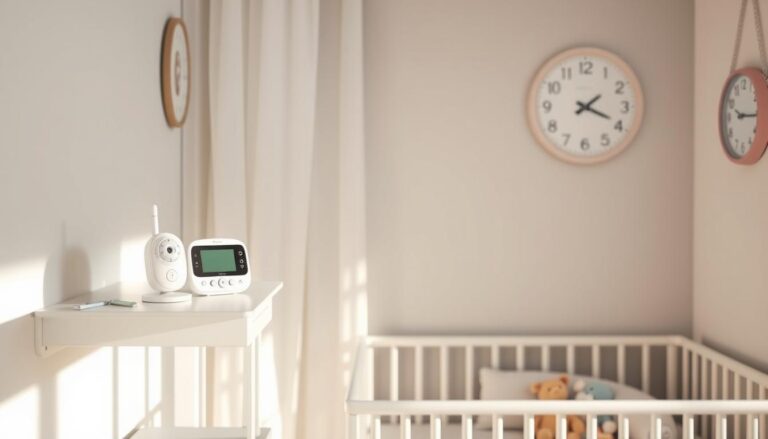As a parent, one of the first decisions you’ll face is how to ensure your baby’s safety while fostering their independence. This often leads to the inevitable question: when to stop using a baby monitor? The transition from relying on these devices to adopting a new parenting stage can be both challenging and empowering. The evolution of baby monitors—from simple audio devices to sophisticated video technology—has provided parents with peace of mind. However, while these gadgets offer reassurance, they can also contribute to over-dependence and anxiety. In this article, we will explore the optimal time to stop using a baby monitor and provide parenting advice on transitioning from baby monitor use to a more balanced approach that promotes your child’s independence.
Understanding the Role of Baby Monitors in Parenting
Baby monitors have become a staple in many homes, providing a practical solution for parents looking to keep an eye on their little ones. The evolution of baby monitoring technology has significantly changed how caregivers interact with their infants. Modern devices offer features such as video surveillance, smartphone connectivity, and health tracking capabilities. Understanding the benefits of using a baby monitor can help you decide how best to utilize these tools during your parenting journey.
The Evolution of Baby Monitoring Technology
In the early days, baby monitoring tools were primarily simple audio devices. With advancements in technology, we now have high-definition video monitors that can connect to smartphones, allowing parents to monitor their children remotely. Newer models even include temperature sensors and movement alerts, adding layers of functionality to the basic premise of keeping an eye on your baby. The evolution of baby monitoring technology has made it easier for parents to respond promptly to their child’s needs, especially during the critical first year.
Benefits of Using a Baby Monitor
- Enhanced Monitoring: Baby monitors provide peace of mind, allowing you to hear or see your child while you attend to other tasks around the house.
- Sleep Pattern Management: Monitoring your baby can help establish healthy sleep patterns, especially in the early months.
- Emergency Response: A reliable baby monitor ensures that you can react quickly if your child needs assistance, especially during overnight hours.
- Accessibility: Many baby monitoring tools have smartphone applications, enabling you to check on your child from virtually anywhere.
Potential Downsides of Over-Reliance on Monitors
While baby monitors have clear advantages, there are potential downsides of monitors that parents should consider. Over-reliance on these devices can lead to increased anxiety for parents, who may feel compelled to check the monitor constantly. Some studies suggest that long-term use of baby monitors could disrupt children’s sleep patterns, leading to less time spent in restorative sleep. It’s important to balance monitoring with fostering independence in your child, observing signs that indicate your child may be ready to transition away from constant monitoring.
When to Stop Using Baby Monitor
Knowing when to stop using a baby monitor can be challenging for many parents. Several signs indicate that your child is ready for independence, allowing you to reduce your reliance on these devices. Recognizing these signs not only fosters your child’s autonomy but also contributes positively to their development. As parenting evolves, understanding your child’s needs is crucial in navigating this transition.
Signs Your Child is Ready for Independence
Children typically begin to show signs of readiness for independence between the ages of 2 and 4. You can look for specific indicators, such as:
- Developing consistent sleep patterns
- Increased curiosity about their environment
- Demonstrating self-soothing abilities at night
- Improvement in communication skills, such as verbalizing feelings or needs
As your child grows and becomes more comfortable exploring their surroundings, gradual adjustments to monitoring can encourage their independence.
The Impact of Monitoring on Child Development
The impact of monitoring on child development can be significant. While baby monitors initially help establish healthy sleep patterns, over-dependence may lead to anxiety in children. Constant surveillance can create a perception of insecurity, causing them to question their safety.
Research indicates that a long-term reliance on baby monitors can hinder a child’s ability to self-soothe. Parents who intervene too quickly may inadvertently impede their child’s development by not allowing them to learn how to manage nighttime awakenings independently. Experts recommend tapering off monitoring gradually, encouraging healthier sleep associations and fostering confidence in a child’s ability to navigate their nighttime routines.
Recognizing Parenting Anxiety Linked to Monitors
Many parents experience anxiety when it comes to monitoring their children. Understanding whether this anxiety stems from genuine safety concerns or from personal fears can aid in making informed decisions about when to stop using baby monitors. Common family tips for managing this anxiety include:
- Evaluating the necessity of constant monitoring based on your child’s developmental milestones.
- Recognizing that continued use of baby monitors might be driven by fears rather than actual safety needs.
- Transitioning away from baby monitors gradually, reducing alerts as your child develops independence.

Conclusion
Recognizing the right moment to transition away from baby monitors is an essential aspect of your parenting journey. Most experts suggest that ceasing baby monitor use between ages 2 and 4 can encourage healthier habits. By this age, your child is likely sleeping through the night and is able to navigate their sleeping environment independently. Embracing new parenting methods during this transition can bolster your child’s confidence as they learn self-soothing techniques.
As you evaluate your monitoring habits, keep in mind that over-reliance on technology can contribute to heightened anxiety for both you and your child. By gradually reducing your dependence on baby monitors, you can create a more balanced atmosphere at home. Children who demonstrate effective communication and exhibit lesser anxiety about sleeping alone are often ready for this shift, allowing for a smoother transition into their “big kid” bedrooms.
Ultimately, it’s about fostering independence and ensuring that your child’s developmental needs are met. By stepping back, embracing baby monitor alternatives, and allowing your child the freedom to explore their space, you’re not only nurturing their growth but also giving yourself peace of mind. This parenting transition paves the way for more significant milestones as you prepare to support their journey into self-sufficiency.

